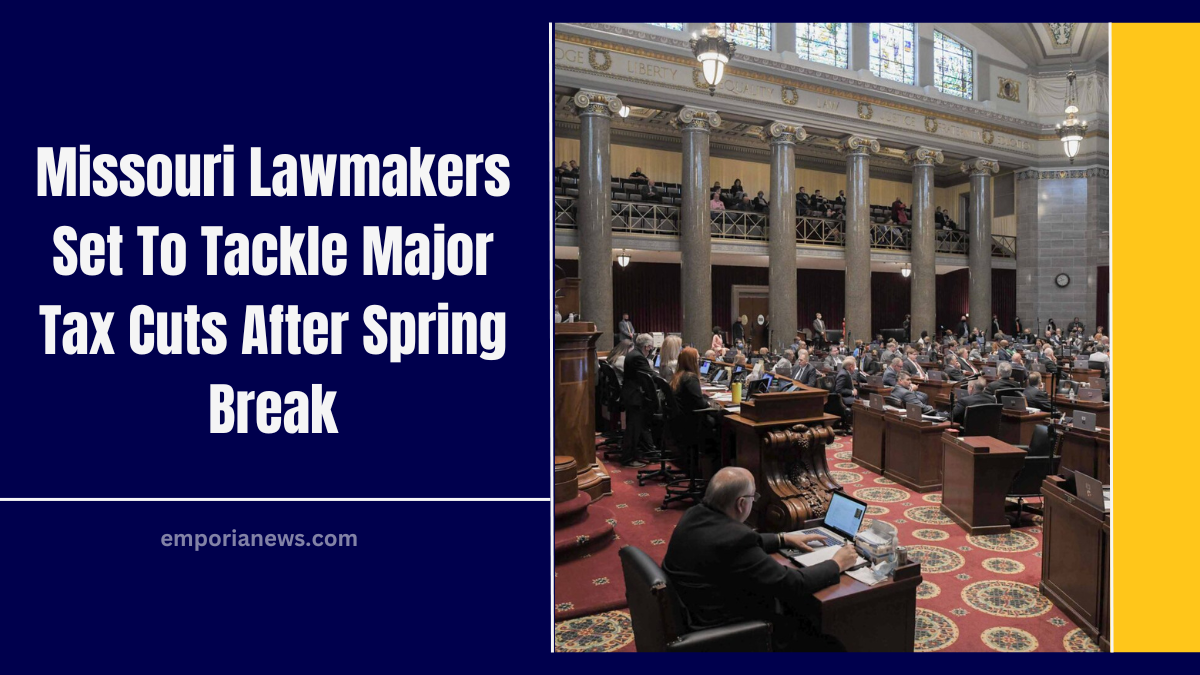As the Missouri legislature reaches the halfway point of its session, lawmakers are gearing up to return after spring break with tax cuts set to dominate the conversation.
With just under two months left before the May 16 deadline to pass bills, tax cuts are expected to be a central focus.
Several tax-related proposals are already in the works, potentially making their way to Governor Mike Kehoe’s desk. These proposed changes could have significant impacts on the state’s economy and its residents.
The Debate Over Tax Cuts: What’s on the Table?
At the beginning of the year, one of the major priorities for the Missouri majority party was to enact tax cuts. As lawmakers return from their break, they will have to address several proposed bills aimed at reducing taxes for both individuals and businesses.
Capital Gains Tax Elimination
One of the most notable proposals is a bill that would eliminate capital gains taxes in Missouri. If passed, this bill would allow individuals to keep all the money they earn from selling assets such as property, stocks, or cars.
This proposal is advancing through the legislature and is expected to be a key topic of debate as lawmakers reconvene after spring break.
Personal Property and Income Tax Cuts
Several other bills are advancing that would also reduce taxes on personal property and income. One such proposal would replace income tax with sales tax on services that are not currently taxed, such as haircuts or real estate transactions.
This change would represent a significant shift in how Missouri’s tax system works, and if passed, it would have far-reaching implications for businesses and individuals alike.
While income tax currently makes up more than half of Missouri’s general revenue, the potential shift to sales tax on services could change how the state generates revenue.
However, this proposal would need approval from Missouri voters before it could go into effect.
General Revenue and State Budget Implications
Missouri’s general revenue has already been affected by previous tax cuts. The state’s budget analysts are forecasting a 0.6% decline in the state’s general revenue for the 2025 fiscal year, predicting approximately $13.35 billion in total.
This decline is attributed to earlier cuts to income taxes, which have resulted in a shrinking budget for the state.
Despite these concerns, Governor Kehoe’s proposed budget for fiscal year 2026 is set at $53.7 billion, representing an increase of $500 million compared to last year.
However, the governor’s plan also includes $1.5 billion in unspent funds, which means that there is a significant cushion in the state’s finances, at least for the time being.
Tax Cuts: Who Benefits?
While many lawmakers and business owners support the proposed tax cuts, Democratic Rep. Marlon Anderson argues that the benefits may not reach the average Missourian.
Anderson, who serves as the assistant minority floor leader, expressed concern that these cuts would disproportionately favor billionaires and large corporations, while leaving out the state’s working-class families.
“We’re steadily making tax cuts for billionaires and corporations, and we’re disregarding the working-class families,” Anderson said.
His comments reflect ongoing tensions between Missouri’s Republican majority and Democratic lawmakers, who argue that the proposed tax cuts will only benefit the wealthiest individuals and large corporations.
What’s Next for Missouri’s Tax Legislation?
With several tax cut bills on the table, lawmakers will have to come together in the coming weeks to negotiate and finalize these proposals.
The debate over tax cuts is expected to heat up once lawmakers return from their spring break, and with just a few months remaining before the legislative session ends, time is running out to make final decisions.
Governor Kehoe has acknowledged that implementing significant changes to Missouri’s tax structure won’t happen overnight.
“That plan will take time to implement, and I’ve said all along the income tax plan won’t be like a light switch, it won’t just happen overnight,” Kehoe said in an interview with the Missouri Capitol Bureau.
As the state grapples with these decisions, it remains to be seen how the tax cuts will affect Missouri’s economy, public services, and its residents.
As Missouri lawmakers prepare to return from spring break, the debate over tax cuts will take center stage. With key proposals advancing through the legislature, Governor Kehoe’s proposed budget, and concerns over the shrinking general revenue, the next few months will be crucial in shaping the state’s fiscal future.
The outcome of these tax discussions could have far-reaching implications for the Missouri economy and its residents, particularly in terms of balancing the interests of businesses and working-class families.
Lawmakers will need to navigate these challenges carefully as they move toward finalizing the state’s tax policy before the session ends.




